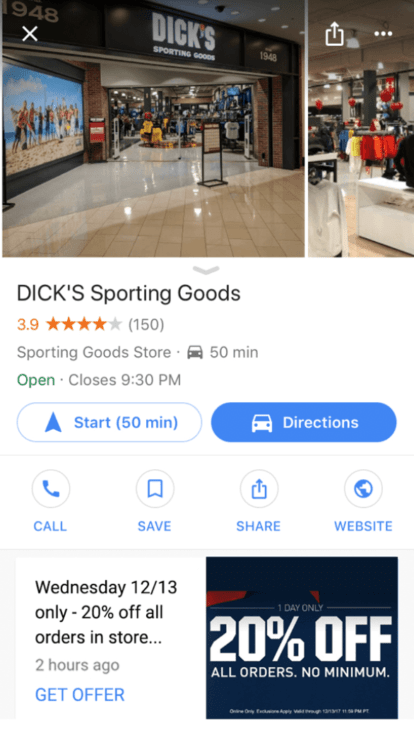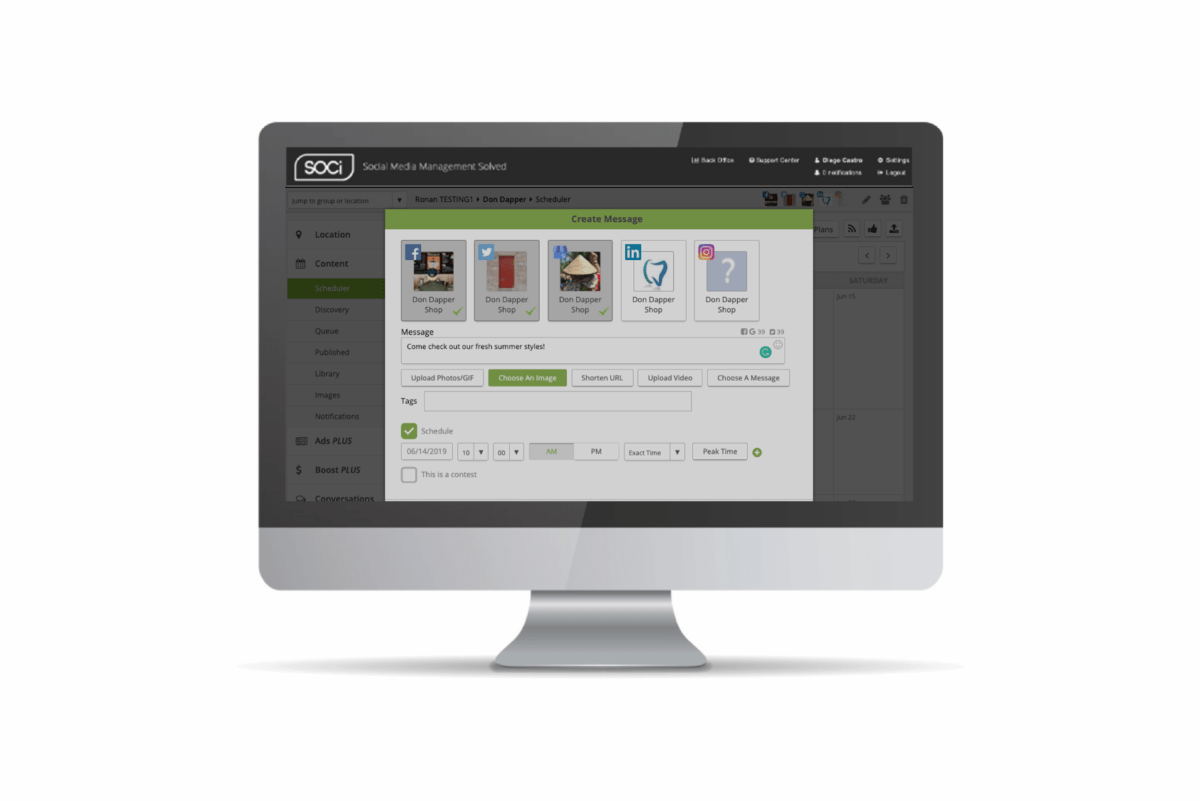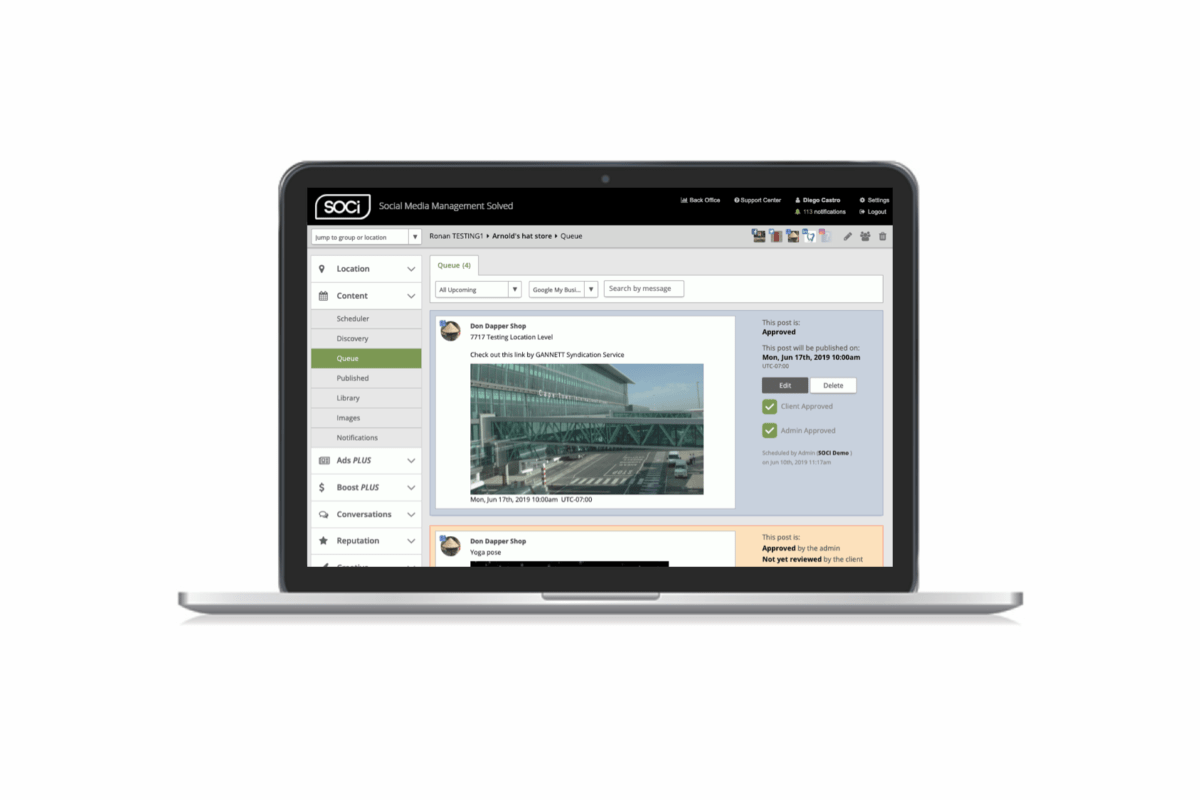Introducing Google Posts: The Newest Tool for Multi-Location Marketers
Google is cutting down on the number of clicks for consumers to learn about the businesses around them, and multi-location businesses are impacted most. In the past, consumers would Google a business, then click away from the search results page to learn more on the business’ website. For a multi-location business with one centralized website, it was easy to control the information consumers saw.
Now, Google displays information about each business location right there in the search results. Each business location’s Google My Business page is more visible than their website; the Google My Business Page is the first information source for consumers searching for your business on Google.
New features within Google My Business (GMB) are empowering businesses to not only display accurate information, but also communicate with consumers on the search results page. One such feature is Google Posts; customized messages that appear on your GMB page and your business’ Google Knowledge Panel in search results.
Google Posts: starting a conversation on the SERP
GMB and the accompanying Google Knowledge Panel are part of Google’s efforts to keep consumers on the search engine results page (SERP). Consumers can find out everything they need to know about local businesses without ever having to click away to the business’ website.
The Google Knowledge Panel — the box on the right side of the SERP that contains information about your business — shows your business’ location, hours of operation, common questions and answers (Google Q&A), reviews, pictures and now, customized messages called Google Posts.
With Google Posts, Google has turned the SERP into a two-way street — allowing businesses to show consumers up-to-date offers, promotions and events. These Google Posts appear on your GMB page, on the Google Knowledge Panel and in Google Maps, depending on which platform the consumer is using to find your business.
According to a study of 2,000 businesses in major American cities, 59 percent of businesses have used Google Posts but only 17 percent had posted within the previous week. Another study showed that just one in four businesses use Google Posts regularly. There is an obvious opportunity for early adopters to use Google Posts before the competition catches on.
While Posts are new and most marketers are still experimenting to find best practices, the fact that they’re free means there is little reason not to implement Posts in your local marketing plan.
Stay up to date on social media trends and the latest SOCi news. Sign up today.
Diving into the details on Google Posts
Google Posts can be up to 300 characters, but only the first 100 will be visible unless the reader clicks on the Post. Each post can include images, videos and GIFs. You can even add a call-to-action such as “Make a Reservation” (for places like restaurants and spas) or “Buy Now” (for businesses with online stores). Google Posts are also shareable, which means there’s an incentive for businesses to post about events that consumers may want to tell their friends about – Google yet again blurring the traditional lines between search engines and social platforms.
Marketers can think of Google Posts as free advertisements. With character limits in place, it’s vital to have an attention-grabbing headline, an enticing CTA and a visually appealing image. As with advertisements, it’s also important to track the success of various Posts to find out which messages and images drive the most clicks or engagement.
The unique opportunity for multi-location marketers
Franchises and other multi-location businesses must be especially cognizant of the new tools Google has provided. Each business location will have different information on the Knowledge Panel, as well as different reviews, photos, Google Q&A content and Google Posts.
One major multi-location brand has used Google Posts with success; in 2017, Dick’s Sporting Goods rolled out Posts across multiple locations to promote Black Friday specials. The results were strong; of all the organic sales Dick’s had on Black Friday, 11 percent were attributed to Google Posts.
Multi-location marketers can take advantage of Google Posts by using localized content in conjunction with national messaging — like the campaign Dick’s Sporting Goods implemented. Each business location can have different Posts that are tailored to their city, neighborhood and local consumers. At the same time, some promotions, events and sales may be applicable to all locations.
Facebook’s Local Business Pages have proven that local content gets more engagement; according to a research report created by SOCi and the Local Search Association, Facebook’s Local Pages get 72 percent of engagement compared to the corporate Brand Pages. Multi-location marketers can take the lessons learned from Facebook’s local tools and apply them to Google My Business and Google Posts.
SOCi integrates Google Posts
Although 82 percent of people turn to search engines to find information about local businesses, it’s only recently that Google has given business more control over the information that consumers are finding. Now, SOCi is giving businesses the same power.
Announcing Google Posts integration on the SOCi platform! Now, any client using SOCi will be able to push content directly to GMB using the SOCi platform, re-use the Post content other social media networks and store content templates.
“By using SOCi’s Sentiment Analysis tool businesses can generate a word cloud for each of their locations to understand what customers are talking about most on Google My Business and other review networks in these different markets. With this invaluable insight, businesses are able to plan out relevant localized content to publish via Google Posts.”
— Nicole Arend, Sr. Retention Marketing Manager, SOCi
Google Posts is powerful because it empowers marketers to display promotional content to consumers early on in the sales funnel; before they even click on your website. Unlike ads, Posts are free and will only be shown to people who are already considering your business, either by searching for it or pulling up your GMB information. If a consumer is tapping different businesses on Google Maps and pulling up various Knowledge Panel listings, a Google Post could be the key differentiating factor that drives them into your business.
Discover how SOCi can help multi-location marketers implement a Google Posts strategy.



